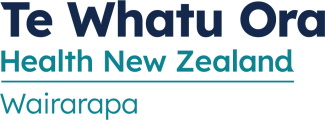We understand that the media has a vital role in letting people know the latest news. This page guides reporters with the best way of requesting information from us in the areas of:
- Media enquiries
- Patient condition updates
- Requests for patient interviews and other patient information
- Guidelines for media visits
- Other interviews and filming
Media enquiries
Email: HNZmedia@health.govt.nz
Patient condition updates
We are able to release the following conditions of patients as long as staff are able to identify them from the information given to us by the media.
- Stable: condition unchanged
- Serious: vital signs stable and within normal limits, patient conscious but may be uncomfortable, indicators questionable.
- Critical: Vital signs unstable, not within normal limits, patient may not be conscious, indicators unfavourable.
We are able to tell you which department or ward a patient is in, or if they have been discharged.
We do not confirm or release names, age, gender, prognosis or any other personal details.
We will not provide information about a patient who is no longer in hospital or patients using community health services, including community mental health services.
Confirmation of a patient's death occurs only with family consent and after notifying next of kin.
Sometimes we will refer you to the police media liaison officer for comment if an incident which resulted in a person being admitted to hospital is thought to be under police investigation.
Requests for patient interviews
We are able make a request for an interview of an adult patient who is in a stable condition. It is up to the patient to accept or decline this interview and to give you their consent to their personal information being shared.
Where the patient is a child we cannot release any personal information regarding a patient without the consent of the parent or guardian.
Where a patient and/or their family members decline interviews and do not consent to the release of information, we are unable to comment on such patients.
There are consent forms to be completed by both the reporter and the interviewee, as well as consents for photographs.
Patient records
These belong to our patients and include medical reports and things like test results, scans and X-rays.
If a patient wants us to give a copy of any of their records to you as media, they must sign a consent form and be specific about what it is they want to release and how it is to be used.
Visiting guidelines for media
If you visit the hospital for patient or staff interviews, photographs or filming, you must get approval from the communications unit first.
It is not enough to get consent from only the patient or their parents or guardian before coming to the hospital to interview them. We need to consider the safety and privacy of other patients and staff. There may also be other factors which could affect your visit, such as infection control risks or concerns of fellow patients, staff and visitors.
When you arrive at the hospital the Communications Manager will meet you and escort you to the patient or staff member you wish to interview.
Other interviews and filming
Our communications staff can save you time by finding the right person to comment on the subject you are covering. All requests for staff and patient interviews, photographs or filming must be made through the communications unit.
Under no circumstances may interviews, filming or photography be carried out on the hospital sites without permission from the communications unit.
If you carry out interviews filming or photography without permission, our hospital security teams will ask you to leave the site immediately.
We are happy to provide you with images of our hospitals, staff and board members which are a suitable resolution for publication.

